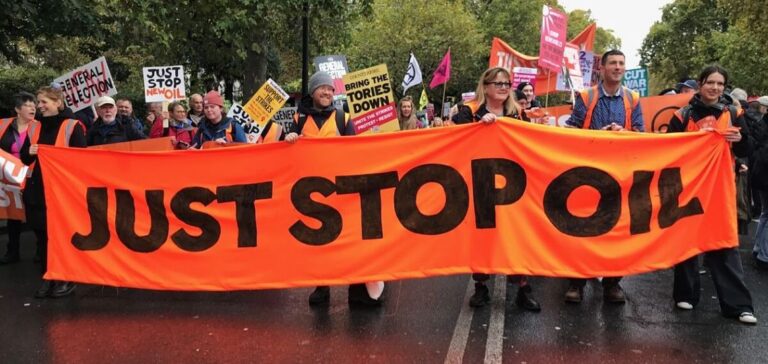The British group Just Stop Oil ended its direct actions on Saturday by organising a march through central London. Several hundred activists walked from Parliament to Shell’s headquarters, removing their signature orange vests to reveal T-shirts bearing a question mark. This symbolic gesture marks the cessation of actions after three years of continuous mobilisation against oil and gas projects.
An end formalised by government commitment
Just Stop Oil had announced in March its decision to stop its actions following the commitment of the Labour government to cease all new oil and gas projects in the United Kingdom. Since 2022, the movement had gained notoriety through widely publicised shock actions, including motorway blockages and soup-throwing incidents targeting artworks in museums. These activities triggered considerable criticism and strong judicial responses.
Halfway through the demonstration, participants stopped in front of the British Court of Appeal, where several activists had been sentenced to prison. Among them were the two activists who had thrown soup at Vincent Van Gogh’s “Sunflowers”. According to organisers, 11 members are currently incarcerated, including co-founder Roger Hallam, while five more are expected to be imprisoned in May.
Continued existence through a new form
One of the march organisers, Tim Crosland, criticised the judicial procedures, describing the trials as “mock trials”. Some demonstrators carried portraits of the imprisoned activists to highlight their situation. Since 2022, Just Stop Oil reports a total of 3,300 arrests in the United Kingdom.
Despite the end of direct actions, the movement plans to continue supporting imprisoned members and to work on developing new strategies with other civil disobedience groups. According to Mel Carrington, a spokesperson for Just Stop Oil, mobilisation has become more challenging due to “judicial repression” and the changing international political context, notably after the election of Donald Trump in the United States.






















